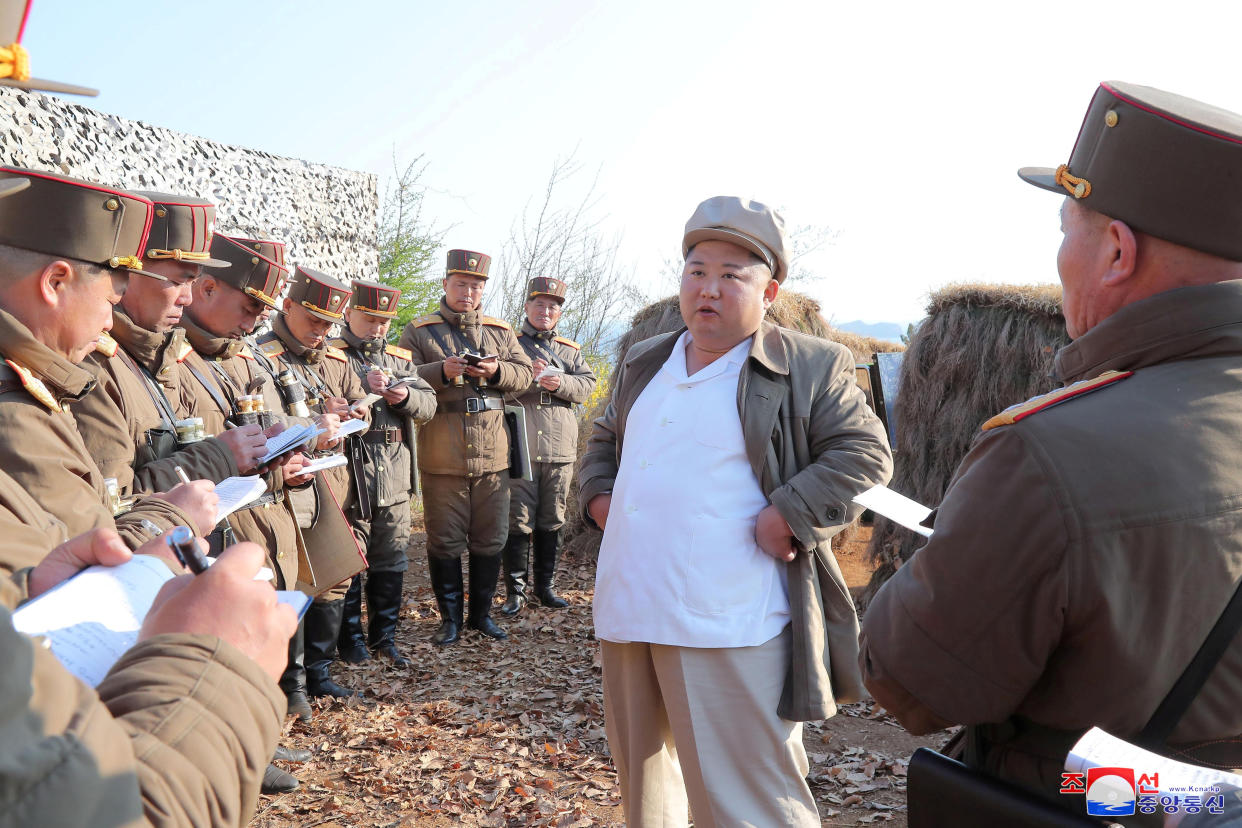North Koreans 'starving to death' as impact of Covid worsens

North Koreans are “starving to death” due to the worsening impact of the coronavirus pandemic, a United Nations investigator has said.
Drastic measures taken to contain Covid-19 have exacerbated human rights abuses and economic hardship for the country’s citizens, UN's Tomas Ojea Quintana said in a report seen by Reuters on Wednesday.
North Korea, which has yet to report any confirmed Covid-19 cases despite sharing a border with China, has imposed border closings, banned most international travel and severely restricted movement domestically in the past year.
Reduced trade with China has led to a significant decrease in market activities, reducing earnings for many families reliant on small-scale market activities, Ojea Quintana said.
Watch: North Korean leader Kim Jong Un admits economic plan failed
“There have been shortages of essential goods, medicines, agricultural inputs for farming and raw materials for state-owned factories,” Quintana said, voicing concern typhoons and floods last year could lead to a “serious food crisis”.
“Deaths by starvation have been reported, as has an increase in the number of children and elderly people who have resorted to begging as families are unable to support them.”
Ojea Quintana, UN special rapporteur on human rights in the country, said further isolation with the outside world during the Covid-19 pandemic appeared to “exacerbate entrenched human rights violations.”
He urged North Korean authorities to ensure the “negative consequences of prevention measures do not become disproportionately greater than the impact of the pandemic itself”.
Humanitarian operations have nearly ground to a halt and only three international aid workers remain in North Korea while relief goods have been stuck at the Chinese border for months due to import restrictions, he said.
There was no immediate reply to a Reuters query to North Korea’s mission to the UN in Geneva.
Pyongyang does not recognise the UN investigator’s mandate and has previously rejected UN allegations of crimes against humanity committed by the state.

How has North Korea fared during the pandemic?
North Korea’s economy has been hit by the coronavirus pandemic and floods this year, which prompted Pyongyang to shut its border with China and ditch outside aid.
The isolated economy, which is already suffering under US and UN sanctions, may have contracted by 8.5% last year, Fitch Solutions said, while South Korea’s Hana Institute of Finance estimated a decline of up to 10%.
The most significant blow came from a drop in trade with China, its top ally, which is responsible for around 90% of North Korea trade.
Two-way trade plunged nearly 80% to $534.1 million last year as of November from the same period of 2019, Chinese customs data showed.
The pandemic likely had a more significant impact than international sanctions, severing nearly all foreign currency sources, including tourism, labour exports and overseas restaurants, experts say.
Reduced trade also led to a lack of fertiliser and farming tools, and severe floods exacerbated North Korea’s chronic food shortages.
The UN’s World Food Programme said in July, just before the monsoon season, that more than 10 million people, or 40% of the population, were already facing food shortages.
Economic concerns triggered volatility in fuel and food prices and exchange rates in unofficial markets, where most ordinary North Koreans buy their food.
What are cases like now?
The country claims to have had no Covid cases but it is set to receive 1.7 million doses of the AstraZeneca vaccine via the COVAX facility by the end of May, allocation figures from the GAVI vaccine alliance and World Health Organization (WHO) showed on Tuesday.


